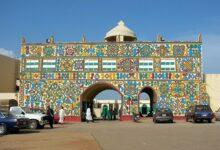
The Roles of Culture in National Development in Nigeria
The Roles of Culture in National Development in Nigeria- A strong and positive culture can be a powerful force for national development in Nigeria. A good culture can foster the conditions necessary for development to thrive by promoting cooperation, community involvement, and social responsibility. For example, a culture that emphasizes the importance of education can lead to increased access to education and higher levels of educational attainment, which in turn can drive economic growth and job creation.InformationGuideNigeria
A culture that values community participation and engagement can also help to build support for development initiatives and ensure that they are designed and implemented to meet the needs of the people who will benefit from them. Finally, a good culture can contribute to the inclusive and sustainable development that Nigeria requires to reach its full potential.
👉 Relocate to Canada Today!
Live, Study and Work in Canada. No Payment is Required! Hurry Now click here to Apply >> Immigrate to CanadaRead Also: The Role Of Code Of Conduct Bureau In Nigeria
What is Culture?
Culture refers to the beliefs, behaviours, objects, and other characteristics that define a group or society. It can also refer to the understanding of the arts and humanities. Culture is often seen as a shared set of traditions, customs, and beliefs that shape the way individuals in a group or society think and behave. It can also include language, religion, and other forms of expression.How to check MTN data balance? Read a step-by-step guide
National culture refers to the shared beliefs, values, customs, behaviours, and artefacts that characterise a particular nation or society. It is the sum of the ways of life developed by a group of people and passed down from generation to generation. National culture can include various elements, such as language, religion, customs, traditions, art, literature, music, and cuisine. It is often shaped by a country’s history, geography, demographic composition, and political, economic, and social structures. National culture can play a significant role in shaping a country’s identity and can influence its approach to national development.
What is the National Development?
National development refers to the process by which a country seeks to improve its citizens’ economic, social, and political well-being. National development can involve various activities, including improving infrastructure, increasing access to education and healthcare, promoting economic growth and job creation, and reducing poverty and inequality.The Roles of Culture in National Development in Nigeria
National development also typically involves efforts to improve the functioning of a country’s institutions, such as its government and legal system, to better serve the needs of its citizens. In short, national development is about creating the conditions that allow a country and its people to thrive.
The Interplay between Culture and National Development
Culture can play a significant role in shaping a country’s approach to national development. Different cultures can lead to different priorities and approaches to development, depending on their values, beliefs, and traditions. For example, a culture that highly values individualism and entrepreneurship may prioritise economic growth and job creation. In contrast, a culture emphasising the importance of community and cooperation may prioritise reducing inequality and providing access to education and healthcare.
In addition, culture can also influence the way that a country’s citizens respond to and engage with development efforts. For example, a culture that values community participation and engagement may lead to stronger support for development initiatives. In comparison, a more individualistic culture may result in less support for collective efforts.
Overall, culture can be a powerful force in shaping national development, and policymakers and development practitioners need to consider cultural factors when designing and implementing development initiatives.
👉 Relocate to Canada Today!
Live, Study and Work in Canada. No Payment is Required! Hurry Now click here to Apply >> Immigrate to CanadaRoles the Culture play in Nigeria’s National Development
-
Culture influences Nigerians’ priorities and goals for national development.
For example, a culture that places a high value on education may prioritise improving access to education and increasing educational attainment. In contrast, a culture that values economic growth may prioritise promoting job creation and entrepreneurship. In Northern Nigeria, the cultural value of education is meagre, causing participation in formal education to be lower than that of Southern Nigeria. That’s why the North has more out-of-school children than the rest of the country.
2. Culture affects the way development initiatives are designed and implemented.
A culture that emphasises community participation may lead to the inclusion of local stakeholders in the planning and decision-making process. In contrast, a culture that values individual achievement may prioritise market-based approaches to development. The Nigerian political culture promotes individual achievement, which has caused policies and initiatives to be lopsided.
Read Also: The Role Of Nigeria In ECOWAS
3. Culture impacts the level of support for development initiatives within a country.
For example, a culture that values cooperation and community may lead to stronger support for collective efforts to address development challenges. In comparison, a culture that emphasises individual achievement may result in less support for such efforts. Rural cultures in Nigeria stimulate a sense of community among neighbours allowing them to interfere in the upbringing of each other’s children. This culture is vaguely seen in urban cities like Lagos.How to hide number on Glo, Airtel, MTN, 9mobile: step-by-step guide
4. Culture influences the way that development initiatives are perceived and evaluated.
For example, a culture that values tradition and conservation may view development initiatives involving significant environmental changes or traditional ways of life as negative. In contrast, a culture that emphasises progress and innovation may positively view such initiatives. The cultural perspective of Nigeria towards homosexuality has allowed us to repel laws that will legalise such acts within the country.JAMB Result
5. Culture shapes the way that development is funded and financed.
For example, a culture that values religion may result in a greater investment of public funds in building and maintaining religious structures. In contrast, a secular culture emphasises more on investment in essential service structures.
Read Also: The Role of Citizenship Education in Promoting National Consciousness and Unity in Nigeria
6. Culture can impact the level of participation and engagement in development initiatives.
A culture that emphasises individual responsibility and apathy may lead to less participation in collective development efforts. In contrast, a culture that values community involvement may result in higher levels of participation. Such is the taxing culture in Nigeria, people are apathetic towards paying taxes, and this culture reduces the ability of the government to take up more developmental projects.
7. Culture affects the way that development successes and failures are understood and interpreted.
Cultures that emphasise and instil trust in the government and its decisions are more open to the government’s new policies. Meanwhile, cultures promoting individual responsibility are less likely to be open to new government policies and will agitate when they don’t achieve their intended purpose.
8. Culture influences the way that development is measured and evaluated.
The measurement and evaluation of growth are essential in any development process. Therefore, a culture that values economic growth may prioritise measures of economic output, while a culture that emphasises social welfare may prioritise measures of well-being and quality of life. In Nigeria, this brings the debate of the relevance of increased GDP when the standard of living continues to deteriorate.
Read Also: 9 The Role of Education to Development in Nigeria
9. Culture can shape the way that development initiatives are communicated and disseminated.
Cultures that value community participation may prioritise face-to-face communication and dialogue. In contrast, a culture that emphasises individual achievement may prioritise using technology and social media to reach a wider audience.NYSC Portal
10. Culture can influence how development is integrated with other areas of policy and practice.
In Nigeria, a culture that values sustainability may prioritise integrating environmental or cultural initiatives into consideration into development. In contrast, a culture emphasising economic growth may prioritise integrating economic considerations. Since Nigerian culture emphasises economic consideration, we remain less open to using electric vehicles in our daily lives because they are more economic incentives to use fuel-powered vehicles.
Read Also: The Role of Christian Education in Public Health in Nigeria
Conclusion
In conclusion, culture can play a significant role in shaping national development in Nigeria. While a strong and positive culture can foster the conditions necessary for development to thrive, a pervasive culture can hinder national development.JAMB Portal
For example, a culture that emphasises individualism and competition may lead to greater inequality and reduced support for collective efforts to address development challenges. Similarly, a culture that promotes corruption and disregards the rule of law can undermine the institutions necessary for development. Therefore, Nigeria needs to cultivate a strong and positive culture that supports national development and helps the country achieve its full potential.
Check JAMB Result
Check and Confirm: How much is Dollar to Naira



